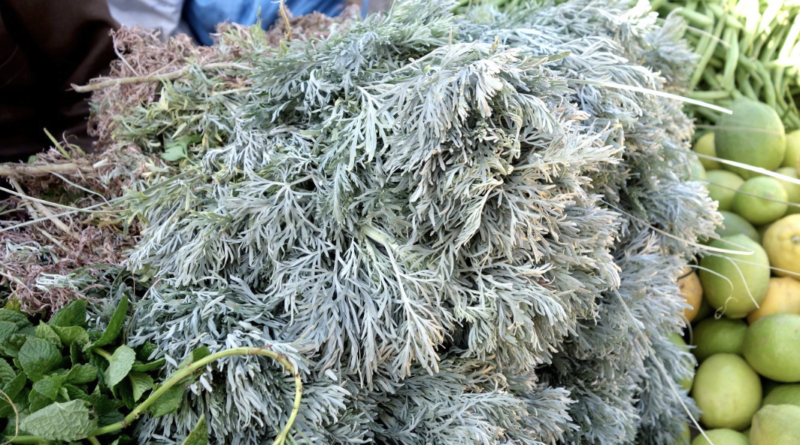Benefits and risks of tea prepared with wormwood
Tea is a staple drink in the Maghreb’s culture and is often enjoyed as a symbol of hospitality. While the traditional recipe consists of green tea, fresh mint leaves, fresh Lemon Verbana leaves, and sugar; a variation of tea also includes the addition of wormwood. The fresh leaves of the plant, known as “Sheeba” in Morocco is used in the winter as it is known to have a warming effect.
Benefits
Wormwood, also known as Artemisia absinthium, is a herb that has been used for medicinal purposes for centuries. It is often used to treat digestive problems, as well as to relieve pain and reduce fevers. In traditional Moroccan medicine, wormwood is also believed to have detoxifying properties.
Wormwood is believed to help the digestive system. Some use it to relieve indigestion and encourage better digestion because of its ability to promote the production of bile and support gallbladder and liver health.
Wormwood is also used to bring down high temperature due to fever. The herb works by inducing sweating in patients suffering from high fever. It also helps in reducing fever that is caused by the actions of intestinal parasites.
In some places, it is considered one of the affordable herbal medicines to combat numerous parasites including pinworms and roundworms. According to research wormwood helps to produce an intestinal environment that is deadly to parasites and other dangerous organisms.
Toxicity
Despite its potential benefits, wormwood should be consumed with caution. The plant contains a toxic chemical called thujone, which can cause convulsions and other serious health problems in large amounts. Therefore, it is recommended to consume only small amounts of wormwood and to avoid consuming it for extended periods of time.
Artemisia absinthium contains a form of thujone which can cause convulsions if consumed in large amounts. However, that is not widely reported and only one case of documented toxicity of wormwood after drinking 10 mL of steam-distilled volatile oil of wormwood. Medicinal extracts of wormwood have not been shown to cause seizure or other adverse effects at usual doses.
Additionally, pregnant women and those with liver or kidney problems should avoid consuming wormwood entirely. It is also important to note that the effects of consuming wormwood in tea have not been thoroughly researched, and more scientific studies are needed to determine its true effects on the human body.
